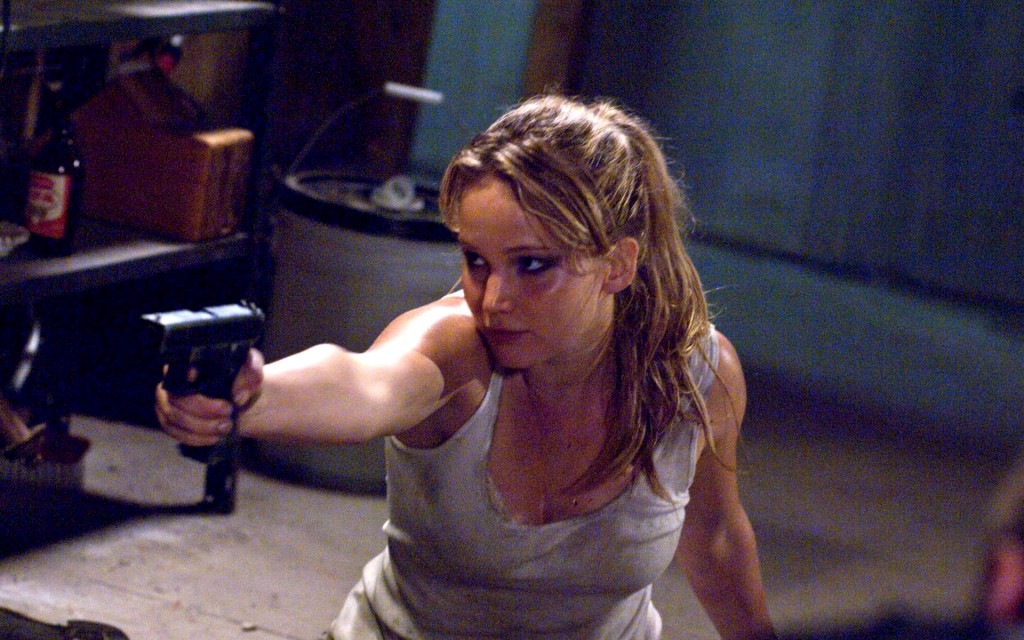Culture
The Bloody Truth: House at the End of the Street

Every week in The Bloody Truth, Calhoun Kersten examines the deeper meanings beneath one of cinema’s deepest genres: horror. Warning: spoilers ahead.
House at the End of the Street is the type of film that knows what it wants to be, but gets caught up in gimmick before it can actually get there. It’s not necessarily a bad film, per se. I mean, it’s certainly not a good one, but it’s the type of “It’s Sunday morning, I’m hungover and don’t wanna think” fare that you expect the PG-13 schlock studios to shell out these days. Nevertheless, the film likes to think of itself as different. Most elements, from the grainy film stock to the minimal violence, suggest that House at the End of the Street is the kind of movie that prides itself on being different from most of the other stuff out there. On the surface, they’re right. However, underneath, House at the End of the Street is a troubling regression back to antiquated horror standards.
The film’s trailer promises a taut thriller, full of mystery and intrigue. Instead, what the film leaves us with is a lackluster morality play that is more puzzling than it is fulfilling. The most obvious evidence of this is presented early on in the film. Moments after Elissa (Jennifer Lawrence) and Sarah (Elisabeth Shue) arrive at their new house, they are enjoying a barbecue with their new neighbors. When Elissa expresses an interest in the house next to theirs and the double murder that took place there, the neighbors are more than happy to engage in idle gossip. They viciously tear apart the young man, Ryan (Max Thierot) who still lives there, even after his family was murdered. The most common reason for hating him, which House at the End of the Street does not shy away from, is that Max living in that house prevents them from tearing the place down and getting rid of that unseemly piece of town history. They accuse him of driving their property values down.
In true fashion, over the course of the movie, Elissa becomes close with Ryan, much to her mother’s objections. Sarah, on the other hand, tries to keep the two apart. Quickly, she becomes overprotective. Keep in mind, Sarah has never shown this kind of protectiveness before and the two are, supposedly, coming from Southside Chicago. Still, Sarah fulfills the dutiful “mama bear” role and tries to protect her daughter, although it is unclear what she is trying to protect her daughter from. From being unpopular? From the mean townspeople? Even after several viewings, it’s unclear what danger, other than social jeopardy, Elissa is in. Evidently, the danger is so great that Sarah uses her powers of flirtation to get a cop to check in on her daughter every so often. Great use of taxpayers’ money, right? The lengths that mothers will go to to keep their daughters from falling in love with young men whose entire families have been slaughtered…
The film spends a lot of time, maybe too much of it, establishing the bitchy neighbors’ complaints against Ryan and spends too much time with Sarah scowling at their budding relationship. Besides throwing off the pacing of the movie, it’s even more ludicrous when the film’s final “twist” comes along. For those who are planning to see it, despite my strong recommendation that you don’t, stop reading here.
Insult is added to injury when the film reveals its true villain. If it wasn’t already abundantly clear in this write-up, Ryan turns out to be the one who murdered his family after…it’s, like, a whole big thing. His sister died and his parents (wealthy meth heads, it would appear based on the flashback) made him take her place, which led him to snap and kill them. I mean…can you blame him? There’s more to it, but the bottom line is, the angry mob that hated him? Sure, they didn’t have the right reason for hating him, but all of the awful rumors and “stay away from him”s that Sarah gave her daughter, turned out to be warranted. She should have been listening to everyone else all along. Mob justice prevails!
Sure, House at the End of the Street was probably just going for some weak twist on a fairly standard horror film, but in the end, just preaches the message that the masses are always right. People that enjoy their solitude are something to be feared. Always listen to your parents, they know best. House at the End of the Street is full of ripe clichés and pacing issues that keep the movie from becoming something great, despite its more than capable cast. Unfortunately, at the end of the day, all that’s left is a tired message, devoid of any scares.